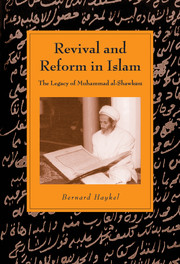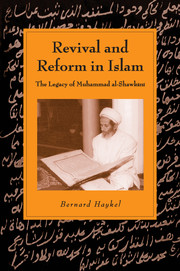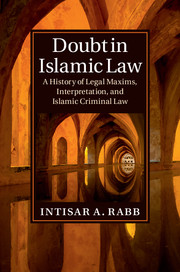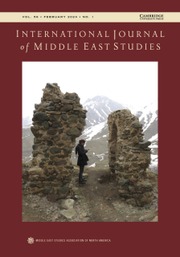An Islamic Legal Philosophy
While many studies of Islamic law have centred on the development of legal theory and substantive law, especially in their formative period of development, Mariam Sheibani instead argues that the rich legal history of the postformative period and the Islamic legal philosophy that developed in it have been comparatively neglected. This innovative study traces the ethical turn in medieval Islamic legal philosophy through the pioneering work of the prominent jurist and legal philosopher Ibn ʿAbd al-Salām (d. 660/1262). Sheibani demonstrates how Ibn ʿAbd al-Salām advanced a comprehensive analysis of the law's purposive and coherent rationality, articulated in a distinctive genre, with direct bearing on legal doctrine and social praxis. Ibn ʿAbd al-Salām expanded on previous theological and legal reasoning, furthering two ideas developed by Khurasani Shāfiʿīs: maṣlaḥa (human benefit) and qawāʿid (legal maxims). He also sought to embody and deploy its teachings for socioreligious reform in Ayyubid Damascus and Cairo, breaking with the dominant formalism of legal practice. The new forms of legal reasoning and writing that Ibn ʿAbd al-Salām developed would influence subsequent jurists from diverse legal schools and across regional traditions until the present day.
- Reconstructs a crucial juncture in the evolution of Islamic legal philosophy, shedding new light on this understudied area of Islamic legal history
- Demonstrates that the ethical turn in Islamic law had both theoretical and applied dimensions and can be dated a century earlier than previously thought
- Illuminates the continuously evolving dynamics of the medieval legal institution of the madhhab after its consolidation in the postformative period
Reviews & endorsements
‘Mariam Sheibani's intellectual biography of Ibn ‘Abd al-Salam is a welcome contribution to our understanding of Islamic legal history in the crucial period when the institutions of Islamic law were stabilizing in the Ayyubid-Mamluk period in Egypt and the Levant. Given Ibn ‘Abd al-Salam's outsized influence – both as theologian and Shafi'i jurist— this study will be indispensable for anyone interested in developments in Islamic law in Egypt and the Levant in the 6th-8th/12th – 14th centuries.' Mohammad Fadel, University of Toronto
‘This rich and absorbing study brilliantly interweaves the life and socio-political context of the Shafi'i jurist Ibn ʿAbd al-Salām with a multi-faceted exploration of his intellectual legacy. Sheibani demonstrates Ibn ʿAbd al-Salām's pivotal role in the development of an Islamic legal philosophy premised on the rational coherence of the law.' Marion H. Katz, New York University
Product details
December 2025Hardback
9781009588461
315 pages
229 × 152 mm
Not yet published - available from December 2025
Table of Contents
- Introduction
- 1. The revival of Shāfiʿism and intellectual life in Damascus
- 2. Ibn ʿAbd al-Salām's scholarly formation and the politics of patronage in ayyubid Damascus
- 3. Maṣlaḥa in Ibn ʿAbd al-Salām's legal philosophy
- 4. Legal maxims in Ibn ʿAbd al-Salām's legal philosophy
- 5. The application of Ibn ʿAbd al-Salām's legal philosophy in Damascus and Egypt
- 6. The reception of Ibn ʿAbd al-Salām's legal philosophy
- Conclusion
- Appendix
- Bibliography
- Index.







